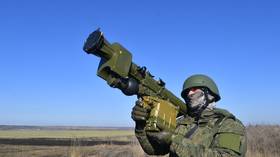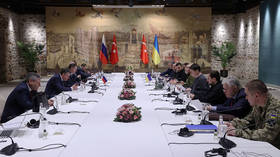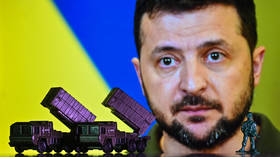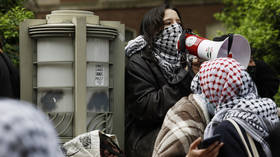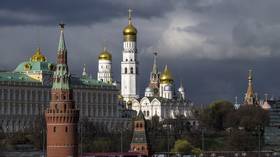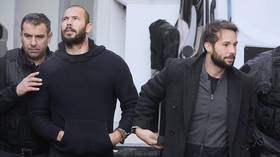Ukraine angry at French state media
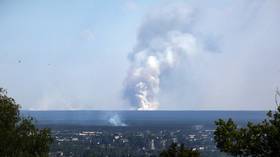
Ukrainian Foreign Ministry spokesman Oleg Nikolenko on Sunday accused France’s Agence France-Presse news agency of falling for “Russian propaganda” by calling forces of the Lugansk People’s Republic “Ukrainian separatists” rather than “Russia’s invading army.” Lugansk and Russian forces announced that they retook the city of Lisichansk on Sunday.
Russian Defense Minister Sergey Shoigu announced on Sunday that Russian and Lugansk People’s Republic (LPR) troops had successfully driven Ukrainian forces out of the city of Lisichansk, which had remained under Ukrainian control since the LPR declared independence in 2014 following a pro-Western coup in Kiev.
Hours beforehand, AFP reported that “Ukraine separatists say they have encircled Lisichansk,” referring to the troops of the LPR, whose independence Russia recognized days before launching its military operation in Ukraine.
Nikolenko took issue with AFP’s description of the LPR’s forces. “AFP became a victim of Russian propaganda,” he tweeted. “It egregiously calls Russia’s invading army ‘Ukraine separatists’, presenting Russia’s war against Ukraine as an internal conflict – Kremlin is cheering.”
#BREAKING@AFP became a victim of Russian propaganda. It egregiously calls Russia’s invading army “Ukraine separatists”, presenting Russia’s war against Ukraine as an internal conflict - Kremlin is cheering. What next - “Ukraine separatists” fire cruise missiles from the Caspian? https://t.co/5kk0fO6LVn
— Oleg Nikolenko (@OlegNikolenko_) July 3, 2022
Despite Nikolenko’s indignation, LPR troops have been in conflict with Ukrainian forces off and on since 2014, eight years before Russia recognized the republic’s independence and sent its troops into Ukraine.
Moscow stated that one of the reasons for its offensive on Ukraine was Kiev’s failure to abide by the Minsk agreements, which were designed to give Donetsk and Lugansk special status within the Ukrainian state. The protocols, brokered by Germany and France, were first signed in 2014, and former Ukrainian President Petro Poroshenko has since admitted that Kiev’s main goal was to use the ceasefire to buy time and “create powerful armed forces.”
According to AFP, Ukrainian officials denied on Saturday that Lisichansk had been encircled, and insisted that the Ukrainian army was still in control of the city. By Sunday afternoon, however, the Ukrainian general staff admitted that “after heavy fighting for Lisichansk, the defence forces of Ukraine were forced to withdraw from their occupied positions and lines.”
Nikolenko has griped with Western media outlets before. Back in May he demanded that Reuters call the “Pro-Moscow Kherson region” of Ukraine the “Russian-occupied Kherson region,” and insisted that grain exports from the city should be called “stolen grain shipments,” despite Ukrainian and Russian officials disputing the status of the grain.


